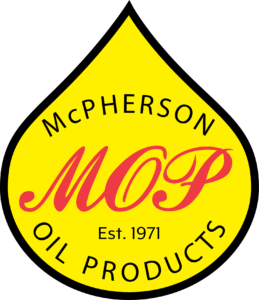You Need to Keep Your Lubricants Clean
17 Jan 2019, Posted by in Oil TipsAnd Here’s How You Can Do It
Just as important as it is to keep machinery in prime form, the same goes for lubricants. If not handled and stored properly, they can deteriorate or worse – become contaminated and render the lubricants no longer appropriate to be used and sent to waste.
Here are four simple yet effective key principles to keep in mind to ensure your lubricants are never compromised:

Exercise utmost care when it comes to safe drum handling
Careless handling of drums, pails and cans of lubricants can lead to leaks and subsequent contamination of the items. In addition, workers could be injured or the plant’s facilities could run the risk of getting damaged. Workers have to take note of the little but significant steps such as:
Gingerly unloading drums from delivery vehicles and ensuring the drums don’t roll off.
Two people should always handle any repositioning and rolling of a drum.
If fork jaws are used to move the drums to the storage area, ensure that the jaws have adapters that take the same shape or curvature of the standard 55-gallon drum. If not, too much pressure can be inflicted on the drum while it is moved and damage it.
Cartons should be kept sealed until they are in storage to minimise the risk of it falling apart during movement.
Keep lubricants indoors
The best place to store lubricants is indoors, in a well-ventilated area, and in one spot that is easily accessible.
Appropriate racks and shelving that protect the containers have to be provided as well with the device that moves the drum.
Never store lubricant near steam lines or heaters.
When new stock come in, store them behind the older ones to prevent them from stretching beyond the expiration dates or shelf life. Keep an updated inventory list to maximise your storage as efficiently as possible.
If the lubricants have to be kept outdoors, take the necessary steps to minimise harm such as placing the drums on blocks or racks several inches above ground to prevent moisture damage.
Be extra careful with bulk storage
Unloading bulk lubricants can be hazardous so it is advisable to only activate trained workers to the task.
Similar to individual lubricants, they should only be stored indoors and where there are no extreme temperatures.
If outdoor storage is necessary, double-check the tanks to ensure that they are properly sealed. Place a waterproof tarpaulin or roof over them to protect them from harsh weather.
Watch out for moisture
Even if your lubricants are indoor, they could be exposed to moisture which may condense inside the oil tanks. It is imperative to remove the moisture to prevent rust from forming and contaminating the oil or grease.
To minimise this, use dessicant breathers, remove the condensate through the bottom drain, or pump it out with bottom-fed pumps.
In drums that contain grease, the condensate can be siphoned off from the top.
About: McPherson Oil is proud to distribute ExxonMobil products in the southeast including Alabama, Arkansas, Florida Panhandle, Georgia, Louisiana, Mississippi and Tennessee.
Courtesy of ExxonMobil’s Technical Help Desk
